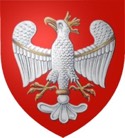Family Card - Person Sheet
Family Card - Person Sheet
Misc. Notes
Boleslaw III Wrymouth (Polish: Boleslaw III Krzywousty; 1085 – 1138) was Duke of Poland from 1102. He was the son of Duke Wladyslaw I Herman and Judith of Bohemia, daughter of Holy Roman Emperor Henry III. Boleslaw III Wrymouth was thus a nephew of Emperor Henry IV.
Boleslaw Wrymouth defeated the Pomeranians at the Battle of Naklo (1109) and took control of Pomerania (1119-1123), thus regaining Polish access to the Baltic Sea. The local government of the Pomeranians was left in place.
Boleslaw also defeated Emperor Henry V (1109) in the Battles of Glogów and Psie Pole (the latter also known, in German translation, as the Battle of Hundsfeld).
In 1135, however, Boleslaw became a vassal of Henry's son, Emperor Lothair II (Lothar von Supplinburg) and the emperor granted Boleslaw Pomerania and Rügen as fiefs.
Boleslaw also campaigned in Hungary 1132 – 1135, but to little effect.
With his first wife, Zbyslava, daughter of Grand Duke Sviatopolk II of Kiev, Boleslaw had one son:
• Wladyslaw II the Exile (born 1105), King of Poland.
Boleslaw subsequently married Salome von Berg-Schelklingen, by whom he had 14 children (six sons and eight daughters), of whom four sons and five daughters are known:
• Boleslaw IV the Curly (born 1125);
• Mieszko III the Old (born 1126);
• Henryk of Sandomierz (born 1127);
• Kazimierz II the Just (born 1138);
• Rycheza of Poland (born April 12, 1116), who married Grand Duke Volodar;
• Dobronega of Poland (born 1128), who married Marquis Dietrich of Niederlausitz;
• Gertruda of Poland;
• Judith of Poland (born 1132), who married Otto I of Brandenburg; and
• Agnes of Poland (born 1137), who married Mstislav II of Kiev.
Before his death in 1138, Boleslaw Wrymouth published his testament dividing his lands among four of his sons. The "senioral principle" established in the testament stated that at all times the eldest member of the dynasty was to have supreme power over the rest and was also to control an indivisible "senioral part": a vast strip of land running north-south down the middle of Poland, with Kraków its chief city. The Senior's prerogatives also included control over Pomerania, a fief of the Holy Roman Empire. The "senioral principle" was soon broken, leading to a period of nearly 200 years of Poland's feudal fragmentation.
Boleslaw Wrymouth defeated the Pomeranians at the Battle of Naklo (1109) and took control of Pomerania (1119-1123), thus regaining Polish access to the Baltic Sea. The local government of the Pomeranians was left in place.
Boleslaw also defeated Emperor Henry V (1109) in the Battles of Glogów and Psie Pole (the latter also known, in German translation, as the Battle of Hundsfeld).
In 1135, however, Boleslaw became a vassal of Henry's son, Emperor Lothair II (Lothar von Supplinburg) and the emperor granted Boleslaw Pomerania and Rügen as fiefs.
Boleslaw also campaigned in Hungary 1132 – 1135, but to little effect.
With his first wife, Zbyslava, daughter of Grand Duke Sviatopolk II of Kiev, Boleslaw had one son:
• Wladyslaw II the Exile (born 1105), King of Poland.
Boleslaw subsequently married Salome von Berg-Schelklingen, by whom he had 14 children (six sons and eight daughters), of whom four sons and five daughters are known:
• Boleslaw IV the Curly (born 1125);
• Mieszko III the Old (born 1126);
• Henryk of Sandomierz (born 1127);
• Kazimierz II the Just (born 1138);
• Rycheza of Poland (born April 12, 1116), who married Grand Duke Volodar;
• Dobronega of Poland (born 1128), who married Marquis Dietrich of Niederlausitz;
• Gertruda of Poland;
• Judith of Poland (born 1132), who married Otto I of Brandenburg; and
• Agnes of Poland (born 1137), who married Mstislav II of Kiev.
Before his death in 1138, Boleslaw Wrymouth published his testament dividing his lands among four of his sons. The "senioral principle" established in the testament stated that at all times the eldest member of the dynasty was to have supreme power over the rest and was also to control an indivisible "senioral part": a vast strip of land running north-south down the middle of Poland, with Kraków its chief city. The Senior's prerogatives also included control over Pomerania, a fief of the Holy Roman Empire. The "senioral principle" was soon broken, leading to a period of nearly 200 years of Poland's feudal fragmentation.
Spouses
FatherSviatopolk II Iziaslavich , Grand Prince of Kiev (1050-1113)
Motherprincess of Bohemia
ChildrenWladislaw II “the Exile” (1105-1159)



